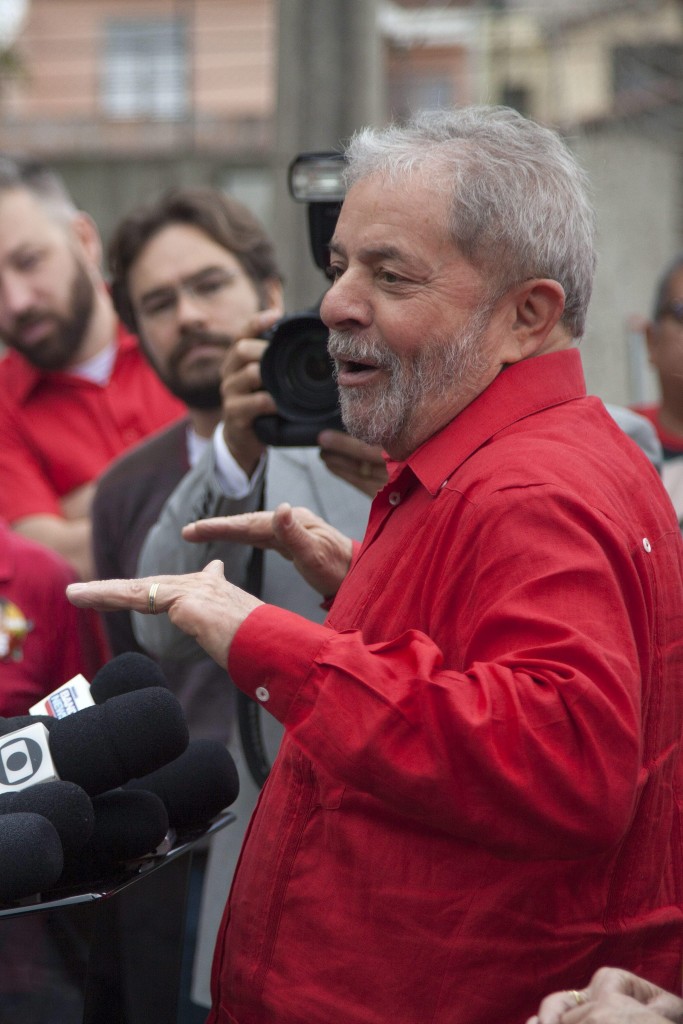Commentary
The rejection of neoliberalism and the Latin American ‘soft coup’
Lula’s imprisonment represents a grave attack on Brazilian democracy, but most of all it is an attempt to stop that extraordinary historical process that allowed 72 million people to rise above the poverty line.

The arrangement of national-international forces in Brazil is central to understanding the Lula affair and more generally the Latin American political situation. The division of labor in the continent assigns the region a minor role, hierarchically subordinate to the interests of northern economies. One of the achievements of research in Latin American history is the emphasis on the relationship with the United States, how it influenced countries and challenged their political, military and strategic leadership in the last 15 years.
A good example of the power relationship that the regional Left built in the last few years is the fact that national economic oligarchies that oppose left-wing governments have resorted to the so-called ‘golpe suave’ (soft coup), rather than the overtly military coups of the middle of the 20th century.
Then-Secretary of State Hillary Clinton supported the Honduran soft coup in 2009 and the timely recognition of Paraguay’s government in 2012, which took power after former Catholic priest Ferdinando Lugo was removed from office. But all this is only secondary compared to Barack Obama’s silence when then Brazilian President Dilma Rousseff was removed, the third and most important of the ‘constitutional coups’ targeting democratically elected progressive governments.
According to New York University history professor Greg Grandin, US behavior followed the same script in all three cases: “Watch, wait and quietly encourage the coup plotters, giving them time to consolidate a new order until recognition seems a reasonable course.”
What changed in Brazil’s case compared to the former ones is what was at stake: a bigger country, with the region’s most diversified economy, and China’s most important economic partner in the region. Marginalizing Lula’s Workers’ Party (PT) meant also questioning the complex economic and political balances of a region where China is becoming an obligation-free alternative to the International Monetary Fund and financial markets — both as investor and creditor of governments — allowing progressive governments to pursue policies that would not have otherwise been sustainable.
The causes of Lula’s political crisis are endogenous. As Perry Anderson argued masterfully in an essay for the London Review of Books, the judiciary’s attention-seeking behavior and the economic oligarchy’s plot had thrived during the crisis of the PT’s economic growth model, with weakness of its social structures. Both economic (limiting China’s influence in the region) and tactical reasons have played a role in the complicit silence of the Obama administration: in promoting the political and economic integration of Latin America, Lula’s Brazil succeeded in becoming less dependent on the US.
From the Rio Pact to the founding of the Organization of American States after the Bogotà Conference in March 1948, Latin American integration had been a tool to organize and tighten the US’s grip on the continent. Things changed when Lula got elected in 2003. That is, when Brazil rejected Bush’s proposal for a Free Trade Area of the Americas (FTAA). Brazil was not intimidated by threats from Commerce Representative Robert Zoellick (who then became World Bank president) that it would ‘trade with Antarctica’ if it decided to remain out of FTAA.
Latin American left-wing movements did not try to propose amendments, and opted to reject free trade integration altogether, thus starting new regional integration processes inspired by global justice, cooperation, solidarity and economic complementarity. ALBA, Unasur, the South-American Defense Council and Celac were then born, and the Mercosur was strengthened.
Regional integration helped to change the region’s political direction. Progressive Latin American countries united their forces to stop a coup attempt in Bolivia in 2008 and prevented a war between Ecuador and Colombia. On the international stage, intensifying commercial relationships with China went hand in hand with an increasing degree of autonomy from Washington. For example, they opposed the war in Iraq and the “war on terror,” and Brazil abstained when the UN voted on operations in Libya.
Lula’s imprisonment represents a grave attack on Brazilian democracy, but most of all it is an attempt to stop that extraordinary historical process that allowed 72 million people to rise above the poverty line, according to UN Development Program data.
Originally published at https://ilmanifesto.it/il-rifiuto-del-neoliberismo-e-i-golpe-costituzionali-in-america-latina/ on 2018-04-14
